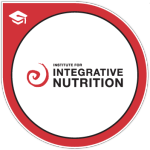Our immune system is responsible for repairing any damage that occurs in the body, even if it's a cancer cell! A well-functioning immune system, supplied by the nutrients it needs is powerful enough to heal cancer. Yes! The body can heal itself even from debilitating diseases like cancer. Cases of spontaneous remission have been reported and documented here. Cancer is beyond the scope of this article though.
Back to our main topic, the immune system. I was saying that its main function is fighting invaders and repairing damages. However, it is also responsible for creating diseases in the body like arterial sclerosis (or narrowing of the arteries) that causes heart attacks!
Dr. Barry Sears, the creator of The Zone Diet and founder of the Inflammation research foundation says: "All chronic diseases are related to chronic inflammation that occurs over years."
What is chronic inflammation and what are the symptoms?
Chronic inflammation is different from acute inflammation in that it does not produce acute, alarming symptoms to warn the patient. It occurs over the years, and can create non-specific symptoms like headaches, bloating, joint pain, weight gain, asthma, ...It could end up with serious diseases heart disease, cancer, alzheimer's and other diseases. (1,2,3)
What causes chronic inflammation?
If the immune system is not powerful enough to fight diseases, inflammation will keep growing in a low-grade manner over time. At the same time, if the immune system is too powerful, the body can attack itself!
What can we do?
There are certain factors that we can control like our lifestyle and food choices we make every day. Remember that food changes everything! What you put in your body has the power to change the expression of your genes!
1. Avoid food that aggravates the problem:
According to Dr. Barry Sears, processed food, processed sugar, processed (white) carbohydrates increase inflammation in the body. Omega-6 fatty acids (found in sunflower and corn oils) also increases inflammation, even though they might have benefits. If you think you have chronic inflammation, you might consider avoiding this type of fat. (4)
2. Increasing the consumption of food that fights inflammation:
Omega 3 fatty acids: found in fish oil (especially salmon) and nuts/seeds like walnuts and chia seeds. It can also be taken as a supplement.
Polyphenols, found in a variety of fruits and vegetables, some spices, nuts, and seeds. You can learn more about them here. To make sure that you're eating enough polyphenols to create a beneficial effect, you should aim for 6-9 servings of fruits/vegetables per day. Like I said before, foods like polyphenols have huge benefits such as activating genes and producing antioxidants that fight free radicals which are responsible for many diseases. (5)
Some foods are anti-inflammatory like garlic, ginger, blueberries, turmeric, and black peppers. Turmeric is one of the most powerful spices as an anti-inflammatory especially when combined with black pepper, they have a synergistic action. Turmeric is also used to fight cancer (6). You might choose to take it as a supplement, or simply add it daily to your cooked food or as a drink. Adding spices to your diet is a big step towards better health.
Antioxidants like blueberries and green tea.
3. Sleep
The quality of sleep is very important. We always talk about the number of hours we should sleep (7-8 hours) but it's actually individual to each person. Quality is more important: uninterrupted sleep. A study conducted in Emory University, USA found that sleep deprivation increases the hormones that cause inflammation and changes the function of blood vessels. (7)
4. Reducing stress
Isn't it the root of all evil? stress! It affects the hormone cortisol which is responsible for regulating inflammation in the body. (8)
Staying away from the sources of inflammation such as processed food and environmental toxins, coming from food contamination or chemicals that we use on our skin, for example, has a huge impact on our health. Replacing these with real food and natural ingredients that are not processed in a laboratory will have long-term positive consequences. It can prevent diseases or even improve current chronic diseases that you thought would never be better!
Interested in private one-on-one coaching to tackle your own root causes? Click here to schedule your first health breakthrough session.
___________________________________________________________________________________
References:
1. "Markers of Myocardial Damage and Inflammation in Relation to Long-Term Mortality in Unstable Coronary Artery Disease ." New England Journal of Medicine. October 19, 2000. <http://www.nejm.org/doi/full/10.1056/NEJM200010193431602#t=article>
2. Steven F. Moss, and Martin J. Blaser. "Mechanisms of Disease: Inflammation and the Origins of Cancer." Nature News. Nature Publishing Group, 01 Feb. 2005. <http://www.nature.com/nrclinonc/journal/v2/n2/full/ncponc0081.html>
3. C. Holmes, C. Cunningham, E. Zotova, J. Woolford, C. Dean, S. Kerr, D. Culliford and V.H. Perry." Systemic inflammation and disease progression in Alzheimer disease” N.p., 08 Sept. 2009. <http://m.neurology.org/content/73/10/768.short>
4. "Science Site Of Anti-Inflammatory Nutrition." Dr. Sears. Barry Sears, n.d. Web. 20 Feb. 2017.
5. Claudine Manach, Augustin Scalbert, Christine Morand, Christian Rémésy and Liliana Jiménez
"Polyphenols: food sources and bioavailability" AJCN | Mobile. N.p., 01 May 2004. <http://m.ajcn.nutrition.org/content/79/5/727.full>
6. Wilken, R., Veena, M. S., Wang, M. B., & Srivatsan, E. S. (2011). Curcumin: A review of anti-cancer properties and therapeutic activity in head and neck squamous cell carcinoma. Molecular Cancer, 10, 12. http://doi.org/10.1186/1476-4598-10-12
7. Jennifer Johnson: "Poor Sleep Quality Increases Inflammation, Community Study Finds." 15 November 2010 <http://shared.web.emory.edu/whsc/news/releases/2010/11/poor-sleep-quality-increases-inflammation-study-finds.html>
8. Carnegie Mellon University. "How stress influences disease: Study reveals inflammation as the culprit." ScienceDaily. ScienceDaily, 2 April 2012. <www.sciencedaily.com/releases/2012/04/120402162546.htm>.


